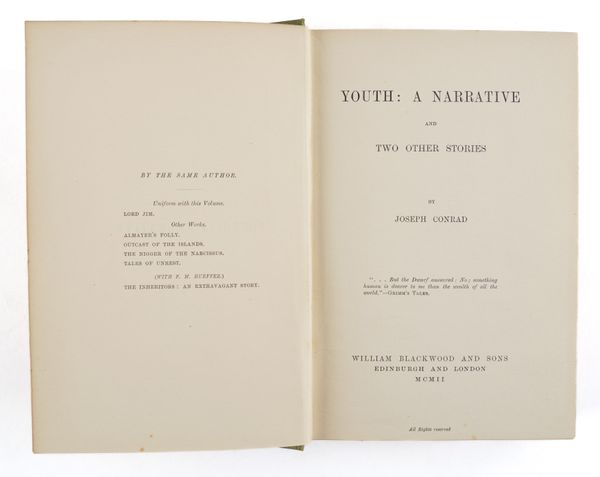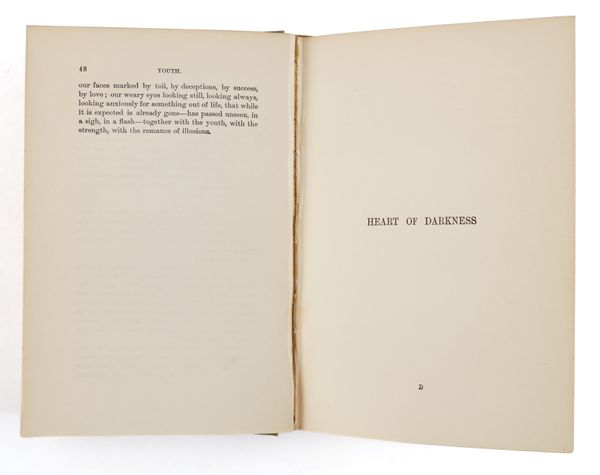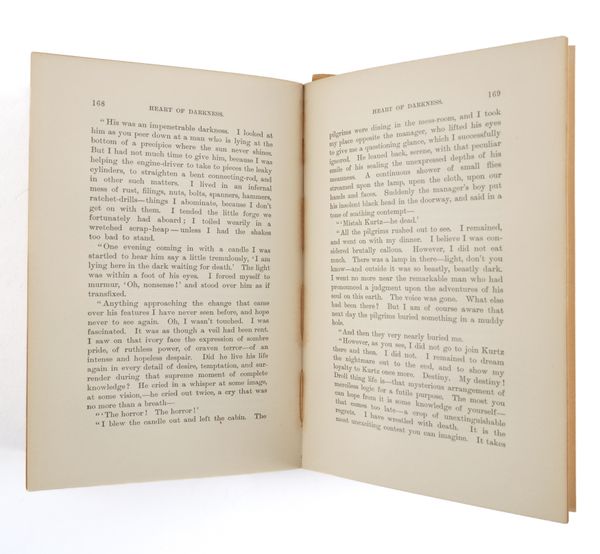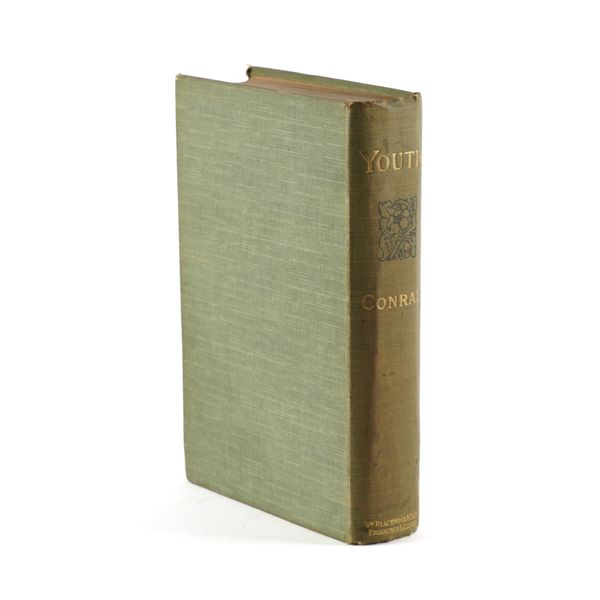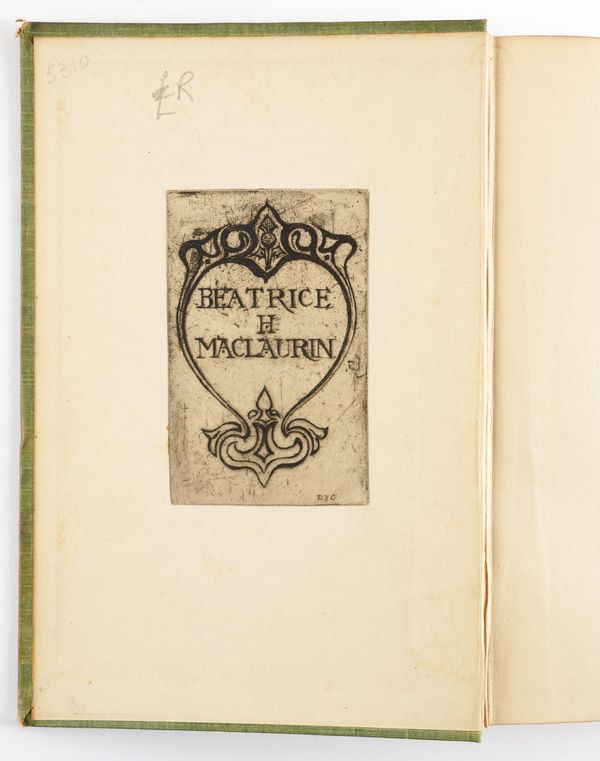CONRAD, Joseph (1857-1924). Youth, London, 1902, 8vo, original cloth gilt (spine darkened and spotted). FIRST EDITION of this collection of three stories which includes "Heart of Darkness", arguably the author's best-known work.
| Estimate: | £500 - £800 |
| Hammer price: | £600 |
CONRAD, Joseph (1857-1924). Youth: A Narrative and Two Other Stories. Edinburgh and London: William Blackwood and Sons, 1902. 8vo (190 x 125mm). Half title with publisher's advertisement on the verso, 32-pages of publisher's advertisements at the end dated "10/02" (two very faint spots at the lower margin of the title, small stain at the edge of the contents leaf, some light staining to the stitching at a few gutters, most pronounced to pages 168 and 169). Original pale green cloth lettered and decorated in darker green, the spine lettered in gilt (spine darkened with some light spotting, extremities very lightly rubbed). Provenance: The Property of a Collector; Beatrice H. Maclaurin (etched bookplate designed by Sir David Young Cameron R.A.). FIRST EDITION, FIRST ISSUE, of this collection of three stories which includes "Heart of Darkness", arguably the author's best-known and most influential work, and certainly the one which has most captured the public imagination. It includes the line "Mistah Kurtz - he dead" which T. S. Eliot chose as the epigraph to "The Hollow Men", and the story provided the inspiration for Francis Ford Coppola's 1979 film "Apocalypse Now" which transferred the setting from the 19th-century Congo Free State to the Vietnam War. "Three stories including 'Heart of Darkness' from which Eliot took the epigraph ... for his 'Hollow Men'. This account of a superman running an ivory business in the heart of the Congo for a greedy sanctimonious Belgian company and brutalising himself and the natives in the process, is a masterpiece of sinister deterioration seen by a narrator who is himself profoundly altered by it" (Connolly). Cagle A7a; Connolly The Modern Movement 14; Ehrsam p.326; Keating 38; Modern Library Top 100 67 (citing "Heart of Darkness"): "... one of the most searing and relevant books of the twentieth century"; Wise 10: "Regarding this volume Mr. Conrad has furnished the following notes:- '"Youth" and "Heart of Darkness" are the first short stories of mine which attracted attention to my work in a wider sphere. Most critics dismissed "The End of the Tether" either with contempt or with a few cursory remarks. The first and second stories are autobiographical, the idea emerging from the narrative. The third story was suggested to me by the fate of a man I knew'."
